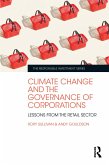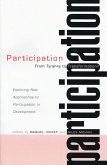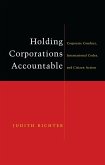At a time when the gigantic transnationals have a huge impact on human health, the environment, working conditions and the economic prospects of nations, this book explores whether it is sufficient to continue to rely on industry self-regulation alone.
Before widening her focus to the general issues, the author examines the now famous case of the infant food industry. Almost two decades after the introduction of the WHO/Unicef Code seeking to regulate the marketing of formula milk substitutes, an estimated one and a half million babies die unnecessarily every year as a result of formula feeding. How effective, therefore, has the Code been in changing industry behaviour?
The author argues that a key question today is how to foster a political climate favourable to practical institutional arrangements for the better regulation of TNCs. Recognizing the tension between global governance on the one hand and the globalized free market on the other, she urges that close attention be given to corporate conduct and TNC compliance with what regulatory codes exist. A range of relevant questions is explored, including the roles of citizen action, national governments and international agencies.
A host of public concerns - for example, job losses when industries migrate or the introduction of GM crops without public consultation - point to corporate regulation as a looming political issue. This book contributes to the debate about how powerful corporations can pay regard not only to the bottom line, but also take more seriously their social responsibilities.
Before widening her focus to the general issues, the author examines the now famous case of the infant food industry. Almost two decades after the introduction of the WHO/Unicef Code seeking to regulate the marketing of formula milk substitutes, an estimated one and a half million babies die unnecessarily every year as a result of formula feeding. How effective, therefore, has the Code been in changing industry behaviour?
The author argues that a key question today is how to foster a political climate favourable to practical institutional arrangements for the better regulation of TNCs. Recognizing the tension between global governance on the one hand and the globalized free market on the other, she urges that close attention be given to corporate conduct and TNC compliance with what regulatory codes exist. A range of relevant questions is explored, including the roles of citizen action, national governments and international agencies.
A host of public concerns - for example, job losses when industries migrate or the introduction of GM crops without public consultation - point to corporate regulation as a looming political issue. This book contributes to the debate about how powerful corporations can pay regard not only to the bottom line, but also take more seriously their social responsibilities.









